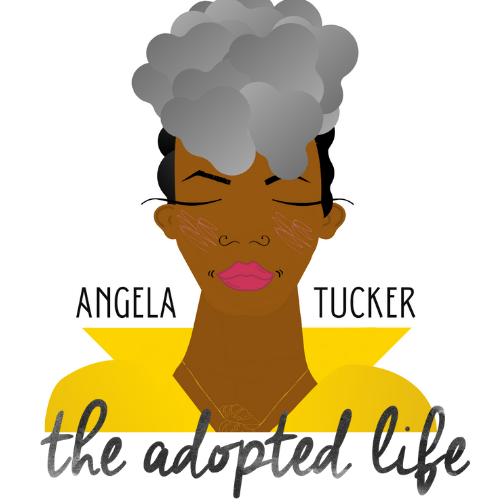Inclusive Family Support Model
Open adoption is not merely something parents do when they exchange photos, send emails, or share a visit; rather, openness can be imagined as a lifestyle that may have its ups and downs as all family relationships will.
The Workshop
Learning Objectives
Does the concept of “open adoption” bring a tightening to your chest? Do you wonder if you’ll be up to all the complexity it brings? Are you tempted to wish for a simple and closed adoption? Or instead, are you seeking ways to help your child deal with the absence of birth parents? Did you wish for an open adoption but birth parents, for any number of reasons, are not available?
The Inclusive Family Support Model is a blueprint for adoptive families and practitioners working with them to maintain healthy relationships that support the adoptee. In our model, all adoptive families reside in one of four quadrants that we have named: inclusive, spirit of openness, mediated contact, and closed.
Join us to learn what open adoption is and isn’t – and it may not be what you think! For example, did you know that even if your child’s birth parents are not available to you, you can still have an open adoption?
We'll cover the difference between contact and openness and gain an understanding of the Inclusive Family Support Model. You’ll find out what really benefits adoptees, and what strengthens their relationships with their adoptive parents. And you’ll see why openness is the key to being the adoptive parent the adoptee needs you to be.
Attendees will be able to normalize the questions, concerns and challenges around navigating openness that families face after finalizing an adoption.
Attendees will be able to differentiate between perceived safety risks and actual safety risks.
Attendees will gain an understanding about the potential impact socioeconomic status, zip codes, race, physical disabilities and/or mental illness may have on openness.
Attendees will shift their focus from adoptive parent-centric feelings to active steps that are adoptee-focused and aimed at strengthening the adoptee’s positive identity development.
Attendees will be able to articulate the differences among the four quadrants of the Inclusive Family Support Model
Attendees will become familiar with the terms ambiguous loss and disenfranchised grief
The Team
-

Angela Tucker
Presenter
Angela Tucker is a Black woman adopted from foster care to white parents. Her debut book: YOU SHOULD BE GRATEFUL: Stories of Race Identity, and Transracial Adoption has received wide acclaim. Angela is the Founder and Executive Director of the Adoptee Mentoring Society and is the subject of Closure, a documentary that chronicles her search for her biological parents. As a film producer, author and cultural commentator, Angela has appeared on CNN, Al Jazeera, The Red Table Talk, in The New Yorker and has contributed to renowned fictional work, including Broadway’s Jagged Little Pill and NBC’s hit show, This Is Us.
Angela is married to Bryan Tucker, an Emmy-award winning filmmaker. They live in Seattle, Washington.
-

Lori Holden
Lori Holden is an adoptive parent of two young adults. For 10 years, Lorihas been educating adoptive parents and adoption professionals, encouraging us to parent with openness and intention.
The premise of her first book, The Open-Hearted Way to Open Adoption, is that adoption creates a split between the child's biology and their biography – and openness is a way to foster integration and healing. Lori’s approach is to help families shift from an Either/Or mindset to a BothAnd heartset that comes from understanding adoptee experiences.
Lori originally conceived of the Open Adoption Grid in which the horizontal (x) axis represents contact between the child and the birth/first parents/family, and the vertical (y) axis represents the adoptee’s knowledge about the adoption, as well as the willingness and ability for adoptive parents to enter into conversations with the adoptee about their adoptedness and about their birth parents.
Lori’s latest book is called Adoption Unfiltered, co-authored with an adoptee and a birth parent. She is also the host of the podcast Adoption: The Long View. Lori was named an Angel in Adoption® and honored by the Congressional Coalition for Adoption Institute.
-

JaeRan Kim
Researcher
JaeRan Kim PhD, MSW, was born in South Korea and adopted to the United States in 1971. She has worked in foster care/adoption (both public and private), with at-risk young moms, and with adults with disabilities in residential care. Jae Ran completed her PhD in Social Work at the University of Minnesota and was a Project Coordinator at the Center for Advanced Studies in Child Welfare at the School of Social Work. JaeRan is a recipient of the Title IV-E Child Welfare and LEND fellowships. JaeRan is currently Associate Professor and BASW chair in the School of Social Work and Criminal Justice at the University of Washington – Tacoma.
PUBLICATIONS
-

The Inclusive Family Support Model: Facilitating Openness for Post-Adoptive Families
by JaeRan Kim & Angela Tucker
-

Improving Open Adoptions: Three Shifts to
Bridge the Gap Between Birth Families and
Adoptive Families for the Adoptees We Love
By Lori Holden
-

“You Should Be Grateful:” Stories of Race, Identity and Transracial Adoption by Angela Tucker
-

Adoption Unfiltered by Sara Easterly (adoptee), Kelsey Vander Vliet Ranyard (birth parent), and Lori Holden (adoptive parent)
-

The Open-Hearted Way to Open Adoption: Helping Your Child Grow Up Whole by Lori Holden & Crystal Hass

